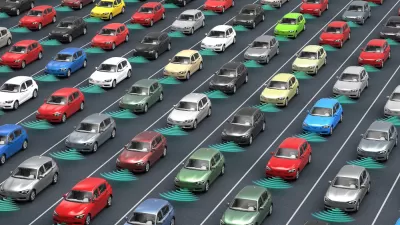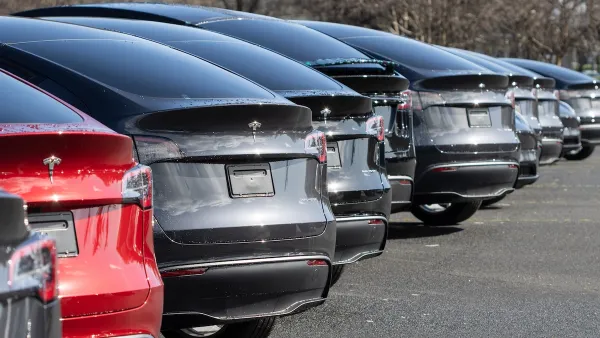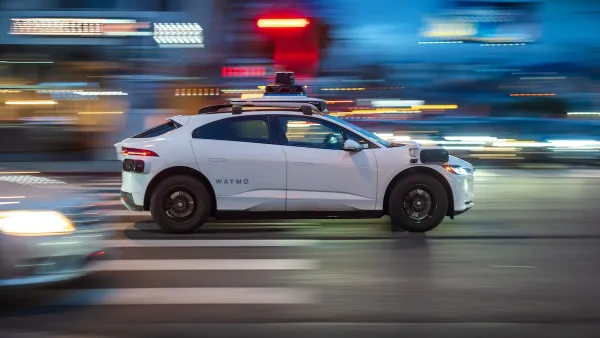With some historical perspective, transportation planners and policymakers can avoid the mistakes of the past and develop a transportation system that acknowledges the needs of all road users.

In a commentary published on Route Fifty, Kevin DeGood calls for “a balanced transportation system that also accommodates pedestrians, transit riders and cyclists” as autonomous vehicles become more commonplace on U.S. streets.
While the debate on when autonomous cars will be fully ready for self-driving operations rages on, DeGood argues that now is the time for policymakers to avoid heading “down a path that deepens our dependence on cars at the expense of sustainable, affordable and equitable alternatives such as public transportation, biking and walking.”
The article names several studies of autonomous vehicle technology that fail to include pedestrians, or even pedestrian infrastructure, in their assessments of self-driving vehicle safety. “And that’s the problem. The infrastructure we build today and how we program AVs will shape our lives and communities for generations to come.”
In the early 20th century, when cars were first introduced, policies led to “a transportation system dominated by driving” and laser-focused on moving cars, fast. DeGood warns that “Accommodating pedestrians, transit riders and cyclists cannot be an afterthought. Communities and transportation systems must be built around people, not motor vehicles. A transportation system that only makes room for sophisticated AVs is a system and a future not worth having.”
FULL STORY: What kind of transportation future do we want?

Planetizen Federal Action Tracker
A weekly monitor of how Trump’s orders and actions are impacting planners and planning in America.

Maui's Vacation Rental Debate Turns Ugly
Verbal attacks, misinformation campaigns and fistfights plague a high-stakes debate to convert thousands of vacation rentals into long-term housing.

San Francisco Suspends Traffic Calming Amidst Record Deaths
Citing “a challenging fiscal landscape,” the city will cease the program on the heels of 42 traffic deaths, including 24 pedestrians.

Amtrak Rolls Out New Orleans to Alabama “Mardi Gras” Train
The new service will operate morning and evening departures between Mobile and New Orleans.

The Subversive Car-Free Guide to Trump's Great American Road Trip
Car-free ways to access Chicagoland’s best tourist attractions.

San Antonio and Austin are Fusing Into one Massive Megaregion
The region spanning the two central Texas cities is growing fast, posing challenges for local infrastructure and water supplies.
Urban Design for Planners 1: Software Tools
This six-course series explores essential urban design concepts using open source software and equips planners with the tools they need to participate fully in the urban design process.
Planning for Universal Design
Learn the tools for implementing Universal Design in planning regulations.
Heyer Gruel & Associates PA
JM Goldson LLC
Custer County Colorado
City of Camden Redevelopment Agency
City of Astoria
Transportation Research & Education Center (TREC) at Portland State University
Jefferson Parish Government
Camden Redevelopment Agency
City of Claremont





























